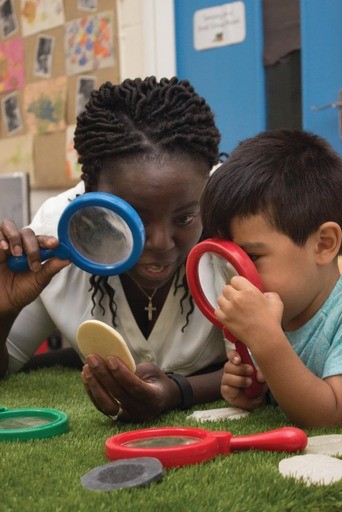
Nursery group LEYF is naming 2023 as their ‘year of sustainability’, publishing its step-by-step sustainability strategy. The group has recently received a Planet Mark Award for employee engagement and its ongoing carbon footprint measurement as an organisation.
The sustainability report sets out its ‘Green LEYF’ approach in the hope of becoming a sector-leading sustainability organisation, working in partnership with the early years and schools to lead and amplify best practice, while preparing children to undertake their roles and responsibilities as 'global citizens'.
The LEYF approach is framed within 17 sustainable development goals, agreed by the United Nations in 2015 which are underpinned by the three pillars of sustainability: economic prosperity, social equity and environmental integrity.
Under its economic pillar of sustainability, LEYF is focused on shaping business to address unfairness and the environmental damage caused by the current market economy. Increasing opportunities for disadvantaged children is at the core of the work it does on this, and is able to subsidise 35 per cent of places to children that otherwise would not be able to attend nursery.

The publication of LEYF’s sustainability strategy follows years of extensive research and reflection, exploring how LEYF operates against Sustainable Development Goals. Particular care was taken to ensure that sustainability was not marginalised as just one small part of a broad environmental programme, but was instead intentionally embedded within the broader direction of inclusive education.
Supporting sustainable approaches at all levels of the business is essential, according to LEYF, who advocate for a collaborative method which encourages engagement from grassroots, to governments, pedagogies and operations.
LEYF initially began looking at ‘little wins’ that would have a big effect, such as removing single-use plastics where possible, changing all milk deliveries to glass bottles so they could be reused and recycled, banning glitter and placing wormeries and composters in every nursery garden to help reduce food waste.
To help educate staff, LEYF also developed and introduced a Level 4 CACHE-endorsed qualification, 'Developing Sustainability in the Early Years' and supported this with two books, one on social leadership and the other providing ideas for sustainability in a nursery.
June O’Sullivan, CEO of LEYF, said, 'Sustainability is finally moving to the centre of political and public agenda, especially as we face huge global issues including growing poverty, inequity in education, environmental degradation and much more. Sustainability needs to be led from the top and engage everyone in the organisation. It needs a holistic strategy if it is to work. Everyone needs to play their part including the children. People think children don’t understand about sustainability, but they do and they are interested. Our job is to prepare them to undertake their roles and responsibilities as global citizens of the future.'
- You can read LEYF’s full sustainability report here: LEYF-Sustainability-Strategy.pdf









